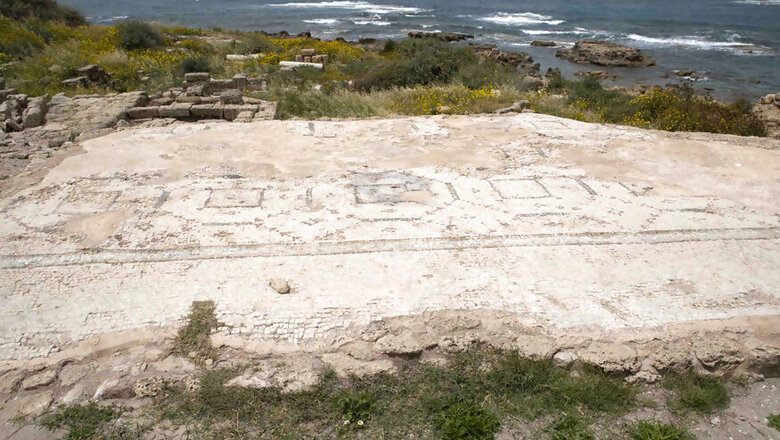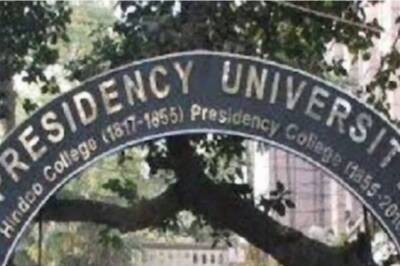
views
Israeli archaeologists working on a major Roman-era port city on Wednesday unveiled new discoveries including an altar dedicated to Augustus Caesar and a centuries-old mother-of-pearl tablet inscribed with a menorah.
The finds at Caesarea, a complex on the Mediterranean coast 50 kilometres (30 miles) north of Tel Aviv, were the result of "one of the largest and most important conservation projects ever undertaken in Israel," the Israel Antiquities Authority said.
Caesarea was established some 2,030 years ago by Roman-appointed King Herod the Great, who ruled what was then Judea.
Today, the ruins are a popular tourist destination where concerts are still held in the remains of an ancient Roman theatre.
Archaeologist Peter Gendelman, leading a tour of the site, said the preservation work was perhaps the most "complicated and interesting" project he had worked on in his 30-year career.
Some of the finds are "completely changing our understanding of the dynamics of this area", he said.
Authorities are planning to finish the excavations within months and open a visitors' centre built into ancient vaults to illustrate the city's history.
Guy Swersky, vice chairman of the Rothschild Caesarea Foundation, said Caesarea was a major city from Roman times right through to the Crusader era.
"This was by far the most important port city in this area of the Middle East," he said.
The Edmond de Rothschild Foundation and local authorities have allocated more than 100 million shekels ($27 million, 25 million euros) for the project.
The site, which contains ruins from later periods including the Byzantine, Muslim and Crusader eras, has been the focus of major excavation work over the decades but recent work has revealed new secrets.
The project also aims to preserve the remains of an ancient synagogue and a nearby aquaduct.
Officials said a small mother-of-pearl tablet engraved with a menorah was testimony to an ancient Jewish presence at the site.
Archaeologists said it likely dates to the fourth or fifth century AD.




















Comments
0 comment